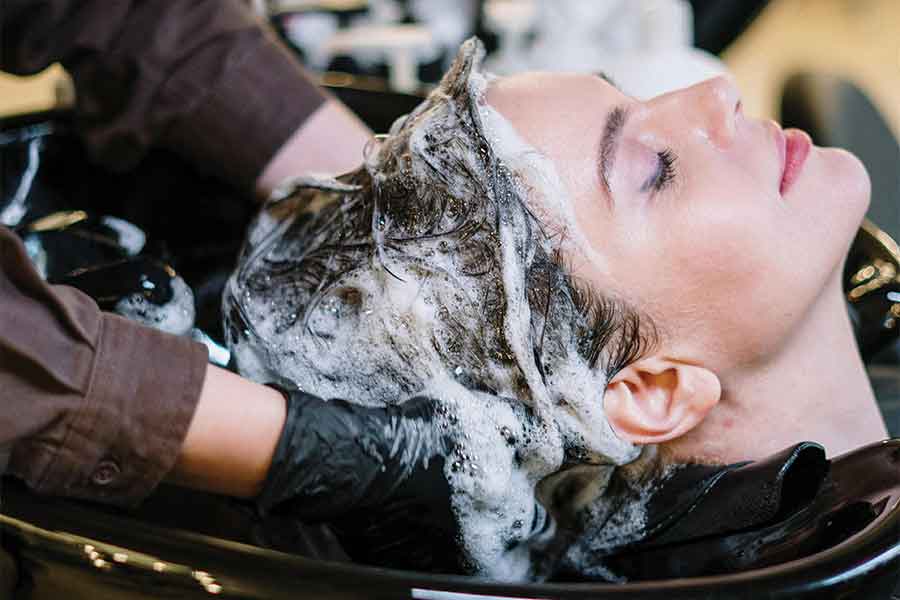Experts decode the right make-up formula to deal with acne-prone skin
Make-up is a versatile art that not only smoothens out the appearance but also enhances the facial features. It’s quite a solution to make one feel good about the way they look! Acne on the other hand is the complete opposite and a big turn off, and adding that little make-up to hide those heart-breaking breakouts is quite a challenge for every make-up professional. So, here we have a comprehensive guide curated by industry experts on make-up for acne prone skin.
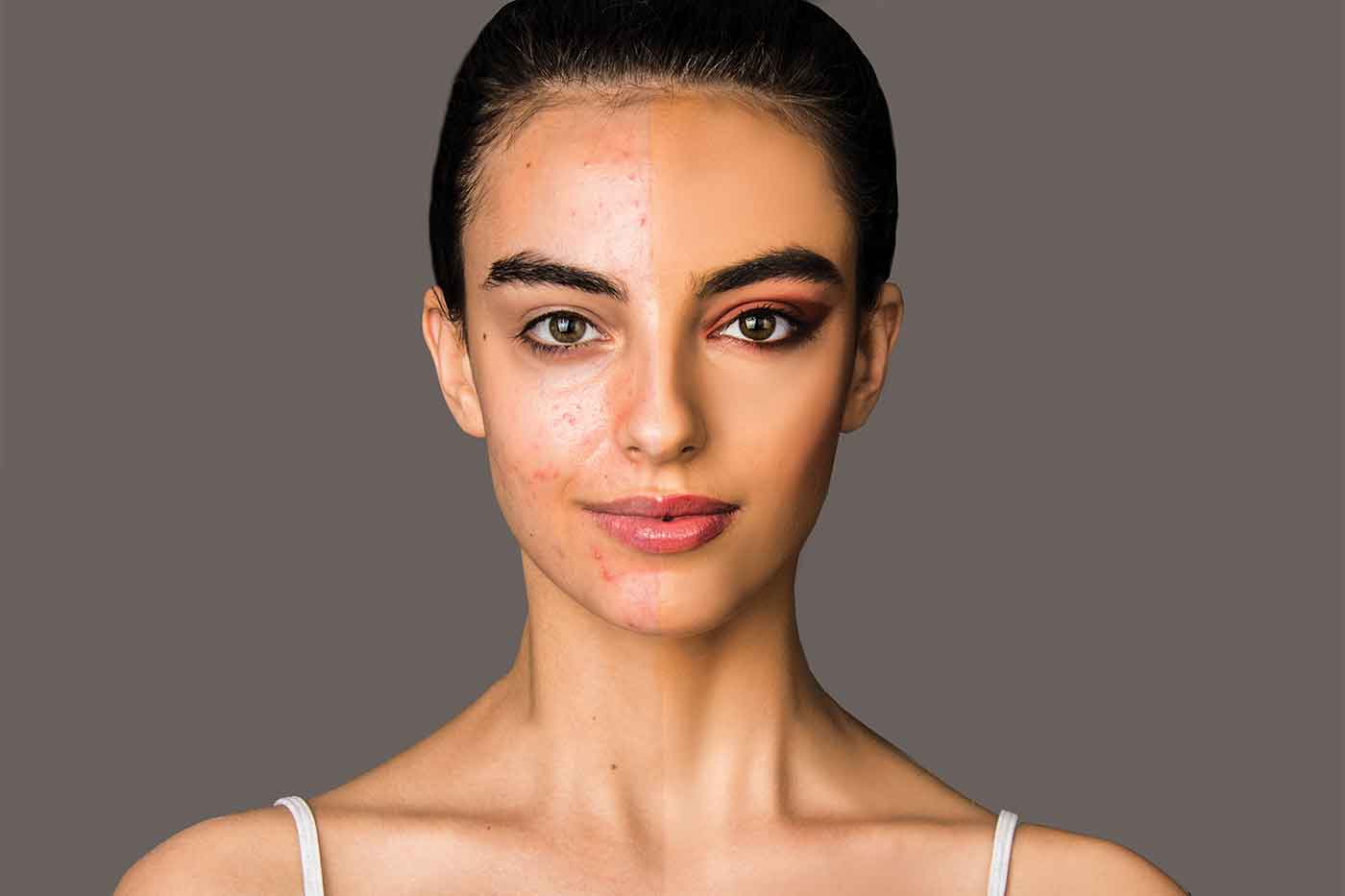
Understanding Acne-Prone Skin
Acne-prone skin requires special attention and consideration when it comes to makeup application. In order to offer optimal service to your clients, it’s essential to have a deep understanding of this skin type’s underlying causes, common triggers, and potential sensitivities.
 According to Richa Agarwal, Founder-Director Cleopatra, Chief Mentor Beauty Therapy & Master Trainer India Skill, excessive oil (sebum) production is a primary cause of acne. When the skin pores get clogged with oil, dead skin cells, and bacteria, it leads to inflammation and acne breakouts. Properly selecting make-up products can provide coverage and help improve the skin’s overall condition. Conversely, using the wrong products can accentuate acne and worsen the skin condition.
According to Richa Agarwal, Founder-Director Cleopatra, Chief Mentor Beauty Therapy & Master Trainer India Skill, excessive oil (sebum) production is a primary cause of acne. When the skin pores get clogged with oil, dead skin cells, and bacteria, it leads to inflammation and acne breakouts. Properly selecting make-up products can provide coverage and help improve the skin’s overall condition. Conversely, using the wrong products can accentuate acne and worsen the skin condition.
Selecting Make-up Products for Acne-Prone Skin
One of the critical aspects of working with acne-prone skin is choosing the right make-up products. Richa emphasizes on the importance of considering ingredients used in the products while choosing primers, foundations, concealers, and powders. She says, “Makeup with the right product will not only camouflage but will also improve skin health. Wrong selection can worsen the skin’s health. Opting for lightweight formulas that are oil-free and non-acnegenic is crucial. It is recommended to choose products that have been specifically tested on acne-prone skin and do not result in breakouts.”
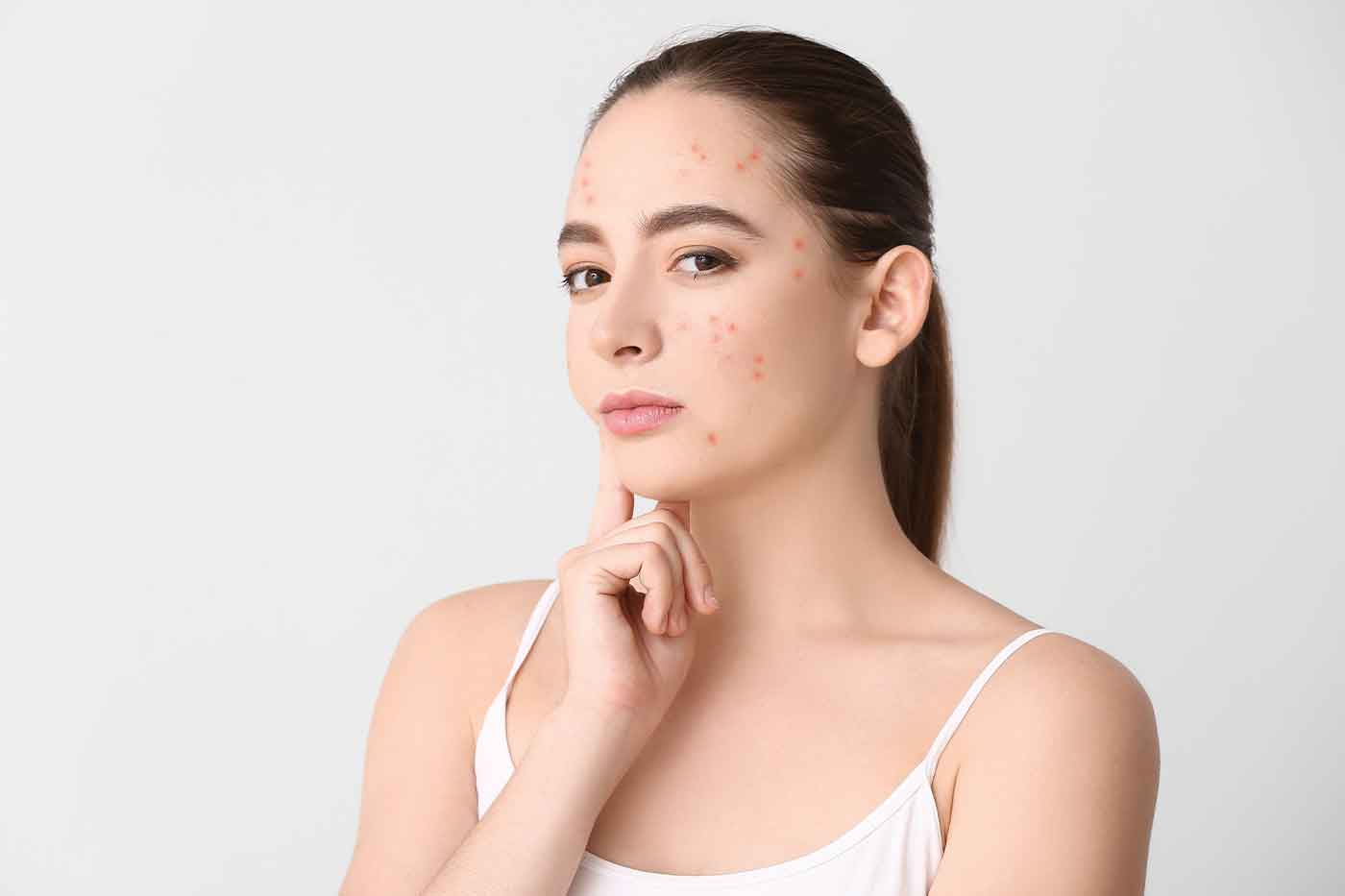
She further suggests using a gel primer, matte oil-free foundation, powder blush, and matte lipstick for individuals with oily skin. On the other hand, for those with dry skin, a cream hydrating primer, dewy foundation, creamy blush, glossy or creamy lipstick, and creamy highlighter is preferred.
 While Pooja Chudasama, Head Educator & Makeup Artist @Vipul Chudasama Salon & Academy shares, “One of the primary culprits behind acne is excess oil, which
While Pooja Chudasama, Head Educator & Makeup Artist @Vipul Chudasama Salon & Academy shares, “One of the primary culprits behind acne is excess oil, which
is why it’s crucial to steer clear of heavy, creamy, or oil-based foundations and products loaded with chemicals. Instead, individuals with acne-prone skin should prioritise the following key elements when selecting Make-up: Gel-based primers, Colour correctors, Lightweight, matte-finish foundations, Clean makeup brushes or beauty blenders, and Double cleansing the face at the end of the day to remove makeup thoroughly.”
She further shares, “Maintaining cleanliness and hygiene is paramount when working with acne-prone skin. Regularly cleaning your makeup brushes and beauty blenders is essential to prevent the accumulation of bacteria that can potentially worsen acne. Additionally, encourage your clients to adopt a double cleansing routine at the end of the day to thoroughly remove make-up, dirt, and impurities, allowing the skin to breathe and heal.”
Make-up Removal and Proper Layering
Proper make-up removal and layering of products are crucial for maintaining healthy skin. Dr. Deepali Bhardwaj, Senior Dermatologist, Delhi, says, “It is advisable to choose make-up that suits your skin type. For instance, if the skin becomes dry due to acne treatments, a niacinamide serum can be used. A niacinamide serum is recommended for excessively oily skin, while a cream-based product is preferred for dry skin. Additionally, applying a matte-finish sunscreen as a protective layer before applying your base make-up is advised.”
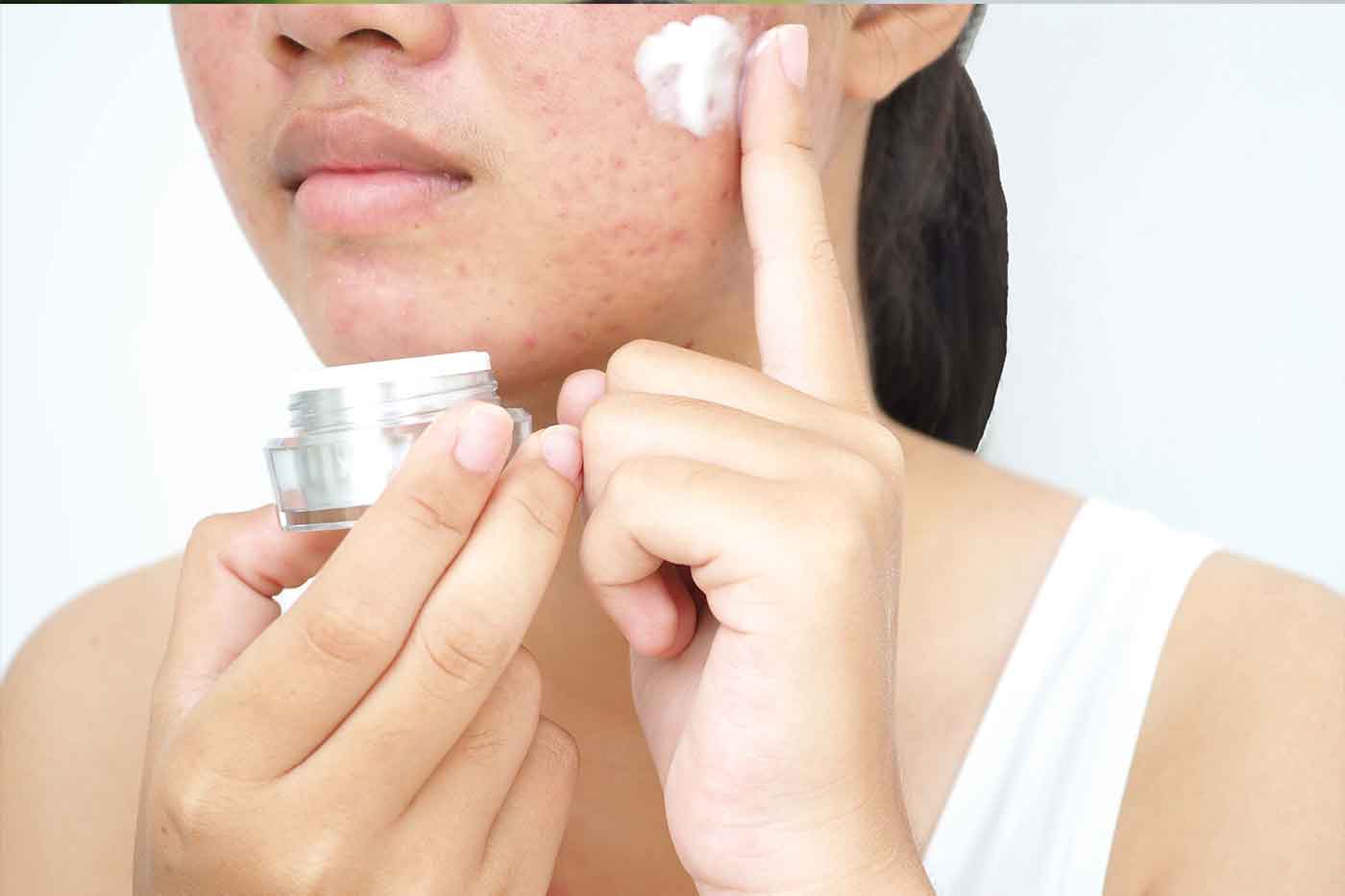
Regarding make-up removal, Dr. Deepali suggests using a cleanser on a cotton ball, washing the face, and applying an antibiotic serum or cream for oily skin, a cream for dry skin, and a gel for combination and oily skin.
Understanding your clients’ underlying causes of acne and selecting the appropriate skincare and make-up products can significantly improve their skin health. Remember to consider the ingredients used in the products, choose lightweight formulas, and opt for products specifically tested on acne-prone skin.
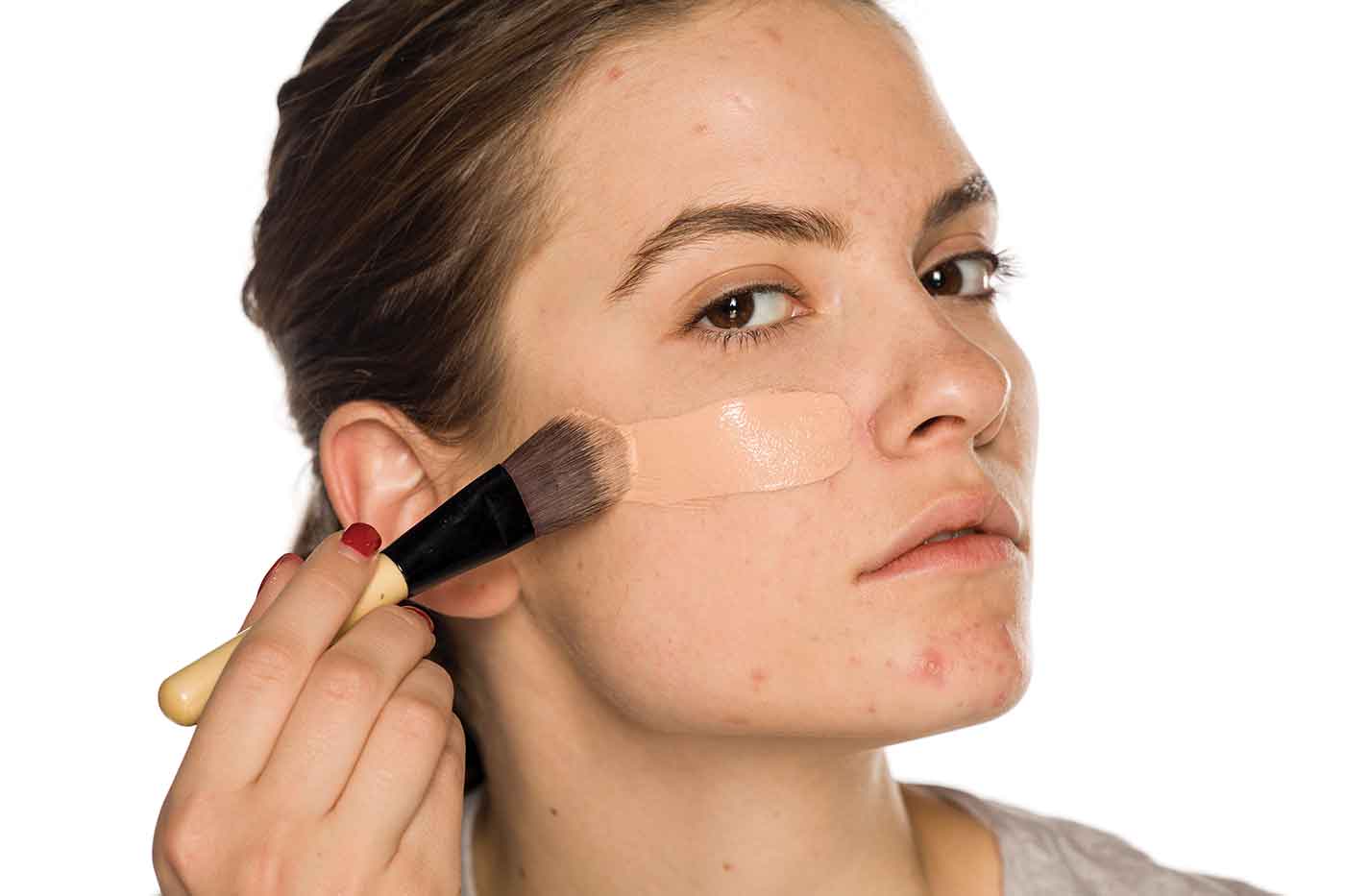
Prepping Your Clients’ Skin for Flawless Make-up Application: Step by Step
- Cleansing, toning, hydration, and cold compression
- Lightweight or gel primer meant for oily or acne-prone skin
- Oil free foundation and concealer (can do airbrush base)
- Powder compact
- Powder eyeshadow, blush and highlighter
- Make-up Fixer/ Setting Spray






